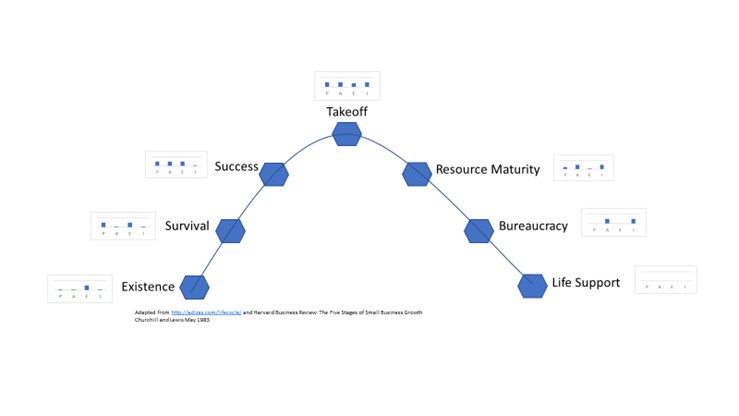Your medical group is growing. You can remember when it was just five doctors, and now your number double digits in both doctors and advance practice providers. Your vision is coming together, but it is getting more complicated to survive every day. Why is it getting harder – not easier?
As your practice grows, challenges become more complex and change becomes harder. It is easier to grow a $5,000,000 practice by 10% ($500,000) than a $20,000,000 practice by 5% ($1,000,000). Growth and change are vital to any practice’s sustainability, but especially in the case of super groups, which must grow at a greater rate than small groups. The typical group practice must grow at least 3% a year to maintain the physicians’ compensation levels. A group that is actively growing, adding doctors, acquiring smaller groups, adding ancillary services, or investing in new procedures must grow at an even faster rate.
So how is this rapid growth accomplished? Much of it comes down to a solid management team, although that management team may not be what you are used to seeing. It is not having staff with titles of CEO, COO, Financial and Human Resources. Yes, those roles are important, but they represent functions rather than a functional team. Unfortunately, medical practices often recruit for title (i.e., position). Get to a certain size; hire a President or CEO. Have complex financials; hire a CFO. Have employee issues; hire a Human Resource person.
That is not the key to success.
A great management team needs team members who can deliver four distinct roles in seamless execution. Titles come second. The roles are Producer, Administrator, Entrepreneur, and Integrator. PAEI is the acronym developed by Dr. Ichak Adizes, a management expert and founder of the Adizes Institute in the early 1970’s to categorize executives into one of four roles.
No one person can successfully serve all the PAEI roles. However, if you have someone covering each of the roles, your management team can be successful, and you can grow your organization effectively. Below is a breakdown of each role.
Producer:
The producer role is responsible for results. They tend to work fast, focus on the result, and get things done. Producers work long hours to ‘make it happen now’ and believe hard work solves everything.
Administrator:
The administrator’s focus is on how a task is done. Think policies, procedures, process and systems. Administrators organize, plan and schedule.
Entrepreneur:
These are the dreamers and idea people. They see the future and help the team see the future, as well. We need the entrepreneur to keep the practice growing and a step ahead of the competition. Entrepreneurs are more likely to take risk.
Integrator:
The integrator brings people together; they maintain harmony in the practice and help develop teams. They focus on the process, not the result, and they play a key role in building the practice’s culture. Integrators are well respected, help other team members and work methodically to solve problems.
It is important to remember that people do not typically fall cleanly into only one category, but rather have a mixture of these roles. The roles – and importance of each – can also change over the life of a practice. A successful practice has a balanced combination of talents between the Producers, Administrators, Entrepreneurs, and Integrators. The following chart illustrates the life cycle of a practice that hires for titles and not vital functions of the team.
To be successful and achieve growth goals, a practice must adjust the ‘weight’ of each role over the lifespan of the business.
Your role as a leader is to identify the strengths of your team and the practice needs. We all feel pressure to fill roles, and that pressure sometimes leads to hires that do not help achieve the practice goals. The person hired may be talented, smart and an expert in their area, but if they do not fit the PAEI needs of the practice, the person will not be successful.
Thomas J. Ferkovic, R, PH, MS, is CEO of Medic Management Group. His background includes extensive work in areas including business and clinical advisory; revenue cycle management, transaction support, crisis management / turn around execution, and practice management. MMG is a national provider of consulting services and back office administrative support to independent and system owned physician practice groups. Additionally, MMG has been formally recognized as a multi-year Northeast Ohio Top Workplaces award winner.
